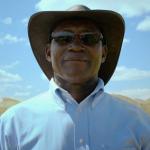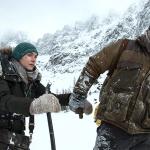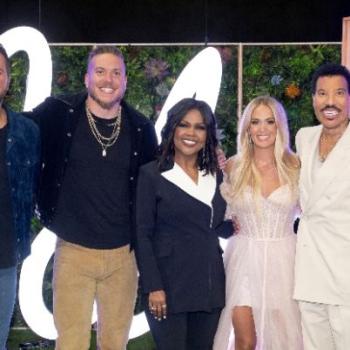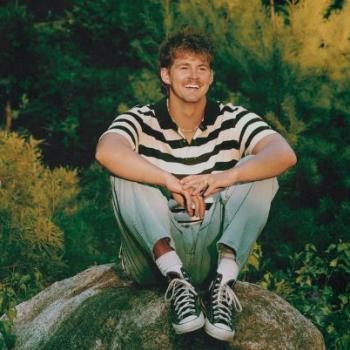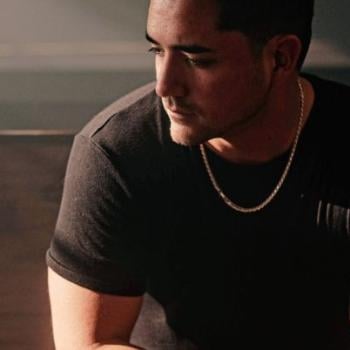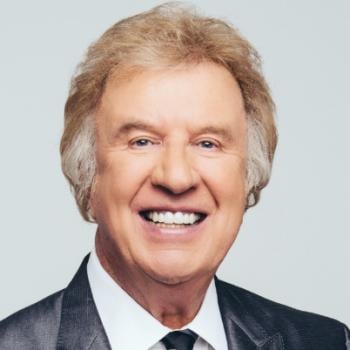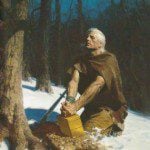Mark Lee, guitarist, songwriter and one-third of bestselling Christian super group Third Day, wasn’t always on the path to write songs that make the whole world sing. As a kid growing up in Powder Springs, Georgia, a near tragic encounter with a truck set him on a journey toward musical accomplishment, which in turn pushed him farther into faith. In his new book Hurt Road, released by Baker Books, he writes about these events as well as meeting singer Mac Powell and forming alliances that would eventually become the GRAMMY Award-winning rock band.
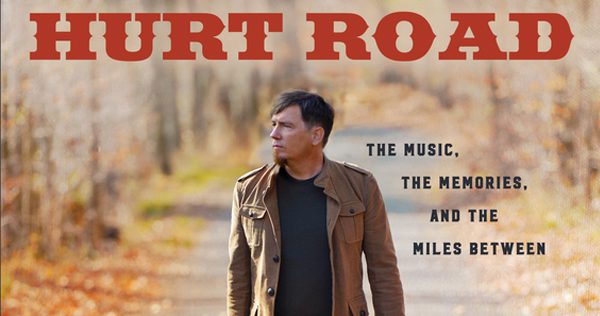
Lee, often referred to as “Dr. Mark Lee” in concert, recently spoke to Reel Faith’s DeWayne Hamby for a podcast and article about the book, the new Third Day record Revival and how he discovered his calling.
So it was 22 years ago when I first became familiar with Third Day. We interviewed during Gospel Music Week with your first project.
Mark Lee: We’re still kicking it, that’s a good thing. In 95, we would have been together for about 2-3 years. So this year actually marks 25 years of Third Day. We started out, we literally were kids right out of high school. A couple of us were still in high school. At the time, we were like, ‘if we could do this for a couple of years, that would really be amazing.’ It’s just a testament to God and how His plans and dreams for us are so much bigger than what we can imagine on our own. Here we are, 25 years later, and all the amazing things we’ve been able to do and all the things we’ve been able to sit back and watch God do through us has been incredible.
When you guys started in Atlanta, everything was all about Nashville, but now there’s a lot of music in Atlanta.
Yes, when we started out, there was a scene that included the Waiting and Jacob’s Trouble, Smalltown Poets. We would all do shows at the Strand and share billing there and it was great. But it was like this little alternative rock scene and it’s gone so mainstream. You’ve got obviously Chris Tomlin and everything going on at Northpoint and you’ve got the Passion movement and Casting Crowns, obviously, Lacrae, all these great artists from Atlanta. It’s like there’s something in the water. It’s been great to be a part of and to see grow up as Third Day.
Tell me about the meaning behind the title Hurt Road.
I’ve traveled around and spoken and shared the ideas behind the book all over the place. When I’m somewhere outside of Atlanta, I go ‘Hurt Road’ and people say, ‘Yeah, I get it – it’s the pain we share and the struggle of the journey.’ And I go, ‘You’re right, but it’s literally a place.’ It’s outside of Marietta, in Cobb County, near where I grew up. When I was 14 years old, I was standing on the side of Hurt Road selling doughnuts for my church youth group and I had just walked out in the intersection and I made my first sale. I guess I was so excited about making the first sale that I forgot that the light had changed. Took one step back toward the side of the road and the guy who bought the doughnuts just said, ‘Hey buddy, look out!’ I look up, there’s headlights and I don’t have time to get out of the way. Next thing I know, I’m hit by this truck. My doughnuts fly everywhere and I’m in the middle of the road. I’m not giving anything away because this literally happens the first scene of the book. But in that moment, I had all of these plans that I had for myself that were so great. I was 14 years old and I thought I knew everything back then. I was going to finish school, get a great job, get married. And they were great plans but I didn’t have God as part of those plans at all really. Getting hit by that truck, it’s like it knocks those plans out of me and it put me on this other path, which at the time felt so much harder and I was kind of mad and confused going through high school. I’ve later learned that was the plan God had for me, missing school and being home. That was the time I learned to play guitar. A couple of years later, you fast forward and I met Mac Powell and we started making music together, garage bands. We started this thing called Third Day and 25 years later, here we are. And I don’t know the theology of it. I don’t know if God makes bad things happen. I know He can, I don’t know that He always does. But I do know in my case he took those difficult circumstances and used them for His good.
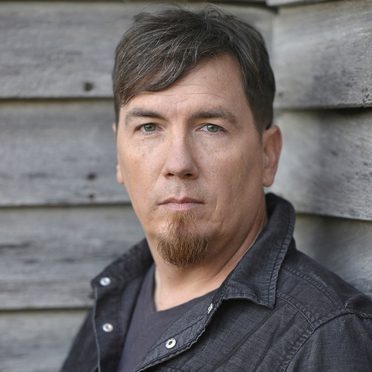
The story of the group coming together is interesting. It’s not so cut and dried.
There’s one point where Mac quits the band before it even really started. Then there’s another point after the band’s been going that I quit. So before Third Day had really even gotten off the ground, Mac and I both quit. I didn’t really get too much into the Third Day that everybody knows, because I feel like we’ve done enough interviews. There’s articles that have been done and there are Wikipedia entries, you can Google it. I felt like there was this other side of the story was far more interesting and my story of getting hit by the truck and what I went through in high school. I also really focus on the early days of the band and getting together, because I felt like that had not been told before. I felt like that would be really fun to share some behind the scenes.
And also it’s about young people coming to terms with what it means to have a calling on your life, right?
Absolutely. How do we go about that? It’s one thing to say ‘Yes, I want to follow after Jesus,’ but what does that look like in real life? We had great mentors and people guiding us through that. We just kind of walked through the path and figured that out. The book starts with getting hit by the truck and then I backtrack and go through some things. Because I do feel like when you talk about these big concepts like purpose and calling, it goes back to our childhood and the things we were passionate about, things we were good at and came more naturally to us than other people. Those things all point to things like calling and purpose. So I felt like that was important to share without it being like an autobiography. I wanted to paint that picture and the story of me coming to faith when I was about nine years old.
And how interesting how things that might be throwaway or not really considered career goals turn into careers
Yes, totally. Music was going to be a side thing, something I was going to do for fun. Yes, it came easy for me, but I just assumed it came easy for everybody else. It really took me getting hit by the truck to turn something I did for fun to something I did seriously and puruse as a passion and later as a career. During the time, after I got hit by the truck, my dad bought me a guitar for my birthday that year. So I started playing guitar first of all as a coping mechanism, as a way to get through some of the hard things I was dealing with at that time, but then a couple of years later, I thought ‘wow, I like this and I’m pretty good at this. Maybe there’s something here.’ It was about that time that God put Mac into my life and we were musical and spiritual brothers, really. We started making music together and it would turn into where we would talk about our faith and we would read the Bible together. Those times together were just really the beginning of what became Third Day.
You just released a new Third Day project that you recorded in Muscle Shoals, Alabama.

Last year, we were out on the road and we were ready to go in and record, but wondering ‘What is this going to be like?’ At that point and time, we were having such a blast with the musicians onstage. We had Tim Gibson, who’s a great buddy of ours, playing bass for the past couple of years. We had Trevor Morgan, who is a great solo artist in his own right, but he’d been playing guitar for us for about a year at that point. We were having such a great time with those guys and we said, ‘Why don’t we just take what we have going on right here and go into the studio? Just see what happens.’ That was part of the motive for it and also there’s a great documentary called Muscle Shoals, which if you haven’t seen it, it’s worth checking out. It’s just all about this huge music scene and these studios and these great recordings that have happened in this tiny town of Muscle Shoals, Alabama. And it really explains why there’s a music scene there to begin with and all the artists and records that have been recorded there, everyone from the Allman Brothers to the Rolling Stones, Aretha Franklin, Bob Dylan, U2, all these huge artists have recorded there. After we saw that documentary, we said, ‘Man, we gotta record in Muscle Shoals.’ So we decided to do that and we just knew with the approach we were taking with the recording that it was going to be a lot looser, a lot more live feeling. So we called up our buddy Monroe Jones, who produced the Time record, which is the closest stylistically to what we were going for on this album. We called him up and he was on board immediately. We loaded up and went to Muscle Shoals for a week last summer and then we also recorded for a week in Atlanta. So between those couple weeks, we recorded a bunch of songs. We’ve had times when we set up and recorded live in the studio like that, but this was the least prepared we’d ever been going into the studio. I think there’s something good to be said about that. We’d just done the Lead Us Back album. We were very deliberate about ‘Okay, seems like all these great records are being made by these kids with laptops and number one, we’re not kids and number two, we don’t know how to make music with laptops, so let’s call kids with laptops.’ So we had these young guys come in and produce Lead Us Back. We loved that album, loved the songs and loved that whole process. But it just felt like after recording that way, we needed to swing the pendulum to the total opposite end of the spectrum. Set up live and let her rip. That’s what we did. Let me tell you, there’s a lot of risk in recording that way, because it could just end up being terrible. We could just fall on our faces, but fortunately, we give credit to God for these things happening and we also give credit to Monroe Jones for pulling out from us what we needed to do during that time. He was good at keeping his eye on the big picture and the goal for what we needed to do during that time. We’re really pleased with the result. When you think of an album called Revival, you think about there’s going to be some tambourines and foot stompin’ and hand clapping. Looking back, I think we captured the fun that we were going for and also it sounds like just some good ole country church revival kind of thing.
For more of the interview with Mark, including his take on some of the most popular Third Day records and milestones, listen to our extended conversation on The DeWayne Hamby podcast.


